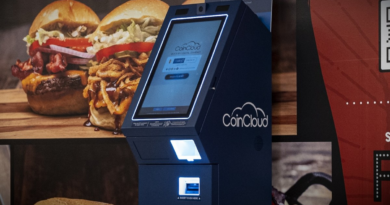Another AV company hits the skids, Scout Motors picks a home and Tesla’s tepid investor day
The Station is a weekly newsletter dedicated to all things transportation. Sign up here — just click The Station — to receive the full edition of the newsletter every weekend in your inbox. Subscribe for free.
Welcome back to The Station, your central hub for all past, present and future means of moving people and packages from Point A to Point B.
FYI, next week I will be in Austin to attend SXSW. I’ll be on stage March 14 and March 15 and you can find me by going to the SXSW schedule. See ya there.
In the days leading up to Tesla Investor Day, there was a lot of chatter and speculation about what future products CEO Elon Musk might reveal. Welp, I wouldn’t describe the four-hour event as particularly illuminating.
Don’t get me wrong, Musk and an unusually long line of senior-level employees, talked a lot about how Tesla would be the driver of a global shift away from fossil fuels and towards renewable energy. There just wasn’t a lot of specifics on exactly how the company was going to achieve that. (I give a full rundown of the major highlights here, including confirmation that it is building a lithium refinery in Corpus Christi.
The bulk of the event was focused on the past. And there were no new details on Tesla’s next-generation EV and its upcoming factory in Mexico (besides confirmation that it was happening) nor did they address current issues with its Full Self-Driving software that is currently unavailable to those who opted to buy the $15,000 option due to a recall.
The market didn’t respond positively, perhaps because the event lacked that big product announcement, specific details on the next step in its so-called master plan 3 or Musk’s signature “one more thing” line.
You can drop us a note at tips@techcrunch.com. If you prefer to remain anonymous, click here to contact us, which includes SecureDrop (instructions here) and various encrypted messaging apps.
Micromobbin’
Aventon has launched its first cargo e-bike, the Abound for $2,199. The bike has options for front and rear storage and a payload capacity of 440 pounds. It’s got a top speed of 20 miles per hour, a 750w motor and range of up to 50 miles.
Cake is launching a B2B subscription offer for its e-mopeds and bikes. Cake Subscribe is an all inclusive service that gives businesses everything from vehicles to servicing and insurance for a monthly payment and no money down.
Delhi says it will only permit motorbike taxis if they’re electric. Uber said the city is risking the livelihood of over 100,000 drivers in the city. The announcement comes just a week after this newsletter reported that Delhi was coming down on apps like Ola and Uber operating motorbike taxi services without a permit.
France has proposed a bill that would require owners of e-bikes and e-scooters to register their vehicles.
HumanForest, the shared e-bike and e-moped service, has partnered with Uber Eats to provide couriers who use the platform with discounted rates. Couriers are eligible to receive a 10% discount on minute bundles, which translates to rides as cheap as £2.25 per hour.
Indonesia will start introducing a $460+ two-wheeler EV incentive in March.
Mosa has completed its first public trial in the UK of its smart parking infrastructure to help fight bicycle theft.
Ola will invest $920 million in battery and EV production in India’s state of Tamil Nadu.
Rad Power Bikes is doubling down on its utility e-bike offerings. The company launched its next-gen Rad Runner 3 Plus with an extended payload capacity of 350 pounds, alongside a suite of new cargo accessories like the Rad Trailer, complete with pet storage insert.
Yulu and Bajaj Auto are working together to produce a new electric moped for sharing.
— Rebecca Bellan
Deal of the week
Just a bunch of deals this week. Here are the ones that got my attention.
Air Company, a startup backed by JetBlue and Toyota that turns carbon dioxide into aviation fuel (and perfume, vodka and hand sanitizer), struck an up-to $65 million deal to help the Air Force capture CO2 and turn it into “sustainable” aviation fuel on base.
Avocargo, a German-based e-cargo bike rental service, filed for insolvency. And Kumpan Electric, a German moped manufacturer, filed for bankruptcy.
iMotion Automotive Technology Suzhou Co., a China-based automated driving developer, is considering a Hong Kong initial public offering that could raise $200 million to $300 million, Bloomberg reported citing sources familiar. The listing could take place as early as this year.
Jet Token, a private aviation booking and membership platform, plans to go public via a merger with special purpose acquisition company Oxbridge Acquisition Corp.
Li-Cycle Holdings, lithium-ion battery recycler in North America, has been conditionally approved for a $375 million loan from the U.S. Department of Energy through the agency’s Advanced Technology Vehicles Manufacturing program.
PteroDynamics, a vertical takeoff and landing (VTOL) aircraft manufacturer based in Colorado Springs, raised $7.5 million in a seed round co-led by existing backer Kairos Ventures and new investors Lavrock Ventures and CS Venture Opportunities Fund.
Stellantis agreed to sell its distribution business in Turkey for €400 million euros ($425 million) to its local partner.
Tier is reportedly trying to raise about $1 billion in debt and maybe in equity as the company tries to reach profitability this year.
Velotric, founded by Lime and Didi alumni, raised $7.4 million in a Series A round, which the company will use to expand its e-bikes in the United States.
Notable news and other tidbits
ADAS
Remember Argo AI, the Pittsburgh-based AV company backed by Ford and VW that shut down last year after the two automakers pulled support? Ford has resurrected parts of it. The automaker created a Pittsburgh-based subsidiary called Latitude AI that will work on improving Ford’s existing advanced driver-assistance system known as BlueCruise and developing new automated driving technology for its next-generation of vehicles. The 550-person subsidiary is primarily former Argo employees. (Reminder that Ford took a $2.7 billion writedown on Argo)
Autonomous vehicles
Aurora and Waymo, two companies attempting to commercial autonomous trucks, want a five-year exemption from Federal Motor Carrier Safety Administration regulations that require reflective triangles to be place around a vehicle if it pulls onto a highway shoulder. The companies want to instead use beacons mounted to the trucks.
Waymo issued a second round of layoffs this year. Combined with the initial cuts in January, the self-driving technology company has let go of 8%, or 209 employees, of its workforce. Meanwhile, the company said it will begin testing its autonomous Jaguar I-Paces without a human safety operator in Los Angeles in the next couple of weeks.
Embark Trucks is in trouble. The company is cutting 70% of its workforce (about 230 employees) and shutting down two offices. CEO Alex Rodrigues noted in an email to employees that the remaining 30% of workers will focus on winding down operations.
Earnings
Blink Charging had a mixed Q4 and full-year earnings report. Revenue beat analysts’ expectations by 5.2% with $61.1 million for Q4, but the company missed EPS estimates by 4.3%. Blink reported a net loss of $91.6 million. Shares were down for the company as investors worry that Blink has less than one year of cash runway. The company is unprofitable and doesn’t expect to reach that milestone in the next three years.
Innoviz reported $6 million in revenue for 2022, about an 11% increase from 2021. The company, which says its program with Volkswagen is still on track, did see its net losses shrink year over year. Innoviz reported a net loss of $126.8 million in 2022, down 17% from the $153.5 million in losses from the prior year.
Rivian generated $663 million in revenue in the fourth quarter and $1.66 billion for the full year, a result that was buoyed by an uptick in production and deliveries towards the end of the year but still wasn’t enough to meet Wall Street’s expectations. Rivian also said it would increase production in 2023 to 50,000 vehicles, a figure that was lower than expected. Shares fell on the trio of suboptimal news, including missed expectations, a recall and an increased, but still lower-than-expected production forecast for 2023.
Electric vehicles, batteries & charging
Ford will restart production of the Ford F-150 Lightning on March 13.
Redwood Materials identified and recovered 1,268 end-of-life battery packs, totaling about half a million pounds of material a year after launching an EV battery recycling program in California. The packs were transported and recycled at its facility in Northern Nevada. From the recovered metals, Redwood said it is already beginning to produce battery materials, anode and cathode that can be returned directly to U.S. battery cell manufacturers.
Scout, the EV upstart spun out of VW Group, has picked South Carolina for its $2 billion factory. But there’s a lot more. Tim Stevens interviewed CEO Scott Keogh and learned more about the company’s plans to bring two rugged EVs — a truck and SUV — to market by 2026. Expect more information this coming week on the incentives package Scout received from the state.
TechCrunch+ reporter Tim De Chant explores why there are so many “gigafactories?” Hint: it’s not just EVs driving the expansion.
Gig economy
Chick-fil-A opened a break room at a location in NYC for a limited time to provide delivery workers a place to rest, warm up, charge their phones and have a snack in between deliveries. Meanwhile in India, Zomato is building out a series of Rest Points for gig workers to relax between deliveries.
Uber rolled out updates to its Shop and Pay feature that address three of the most commonly raised courier issues: out of stock items, digital payments and order clarity before accepting a trip. Rebecca Bellan writes: Uber is coming for Instacart.
In-car tech
Cariad, the software subsidiary under VW Group, launched a group application store (using Harman’s framework) that will bring dozens of apps including Spotify, Amazon Music, TikTok and gaming hubs Vector Unit and FRVR to Audi and eventually other brands under the German automotive group. The intent is for the group application store to stretch across VW Group’s lineup, including the rest of Audi’s portfolio and then onto Porsche and Volkswagen.
Ford applied for a patent on a system that would use connected car tech to help repossess vehicles.
Luminar held its investor day and provided details that built off its announcement at Mercedes-Benz tech event. A few items of note. The company acquired lidar-related IP from Seagate (the data storage technology company) and launched a semiconductor company called LSI that takes the chip design companies it has acquired and puts them all under one entity and with one focus. Luminar also unveiled its next-gen Iris lidar and software, which is the product that will be integrated into Mercedes vehicles by mid decade.
This was another interesting item: Luminar has hired Swiss Re to evaluate its tech’s safety claims and will develop an insurance product based off of those findings.
Tesla paused the rollout of its Full Self-Driving beta software in the United States and Canada following a recall of the system that federal safety regulators warned could allow vehicles to act unsafe around intersections and cause crashes.
See y’all next week.







